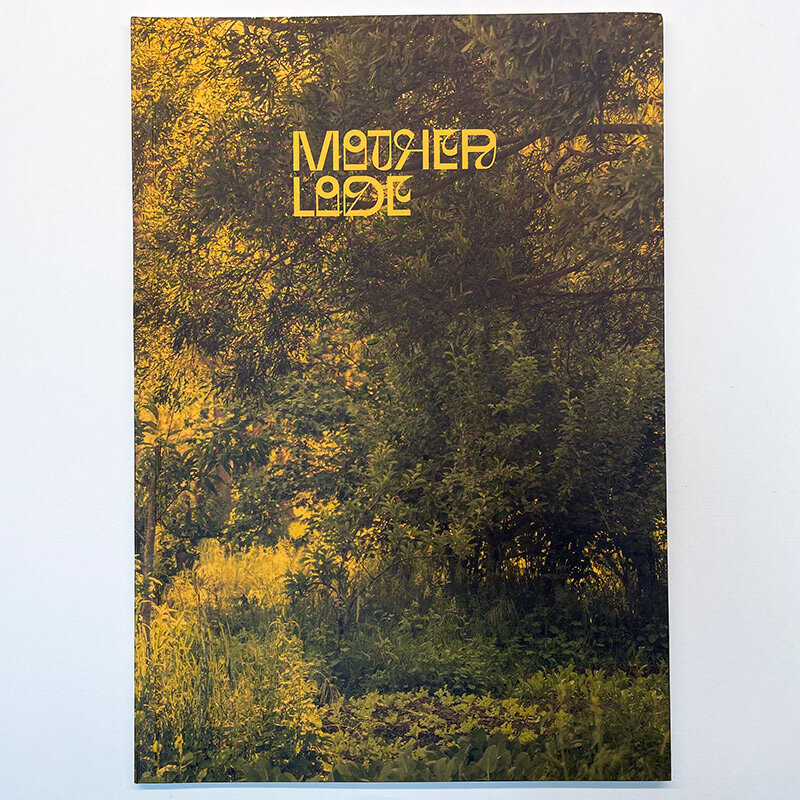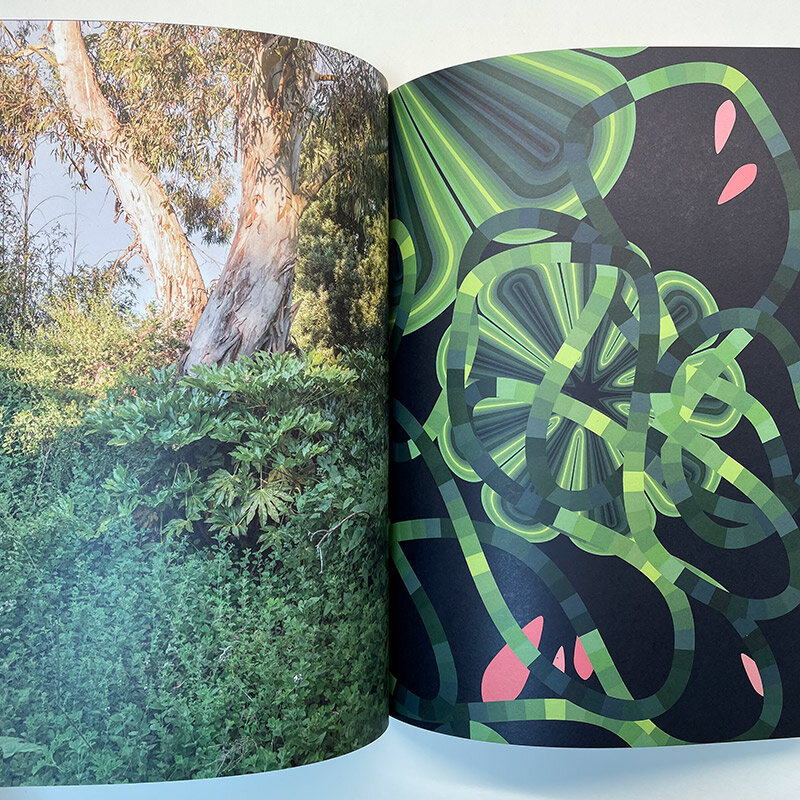
mother lode by Ann Shelton
“mother lode engages an inspirational site: a small farm that ameliorates climate change and stands for food security and food ethics. Wairarapa Eco Farm is an oasis, a tiny salve on the open wound of the climate emergency. Disrupting our aesthetically based relationship with garden landscapes and the Edenic heritage of such manufactured notions of nature, this group of images engage with the history of gardens and their representation in an art historical context. Taken at Wairarapa Eco Farm, they oppose the formulaic and crafted nature of the gardens we have come to regard as beautiful and which have long populated our art historical frame. This garden is a wholly different aesthetic beast where groupings of kale can just be seen emerging from clumps of grass in late summer, and trees, herbs and all kinds of plant matter co-exist and thrive.
This patch of ground is where my vegetables and eggs have been produced for the last thirteen years. The farm operates under the political structure of Community Supported Agriculture, which allows farmers to rely on a predictable income through the advance payment of shares in return for a season’s produce. Oppositional to the monolithic and monocultural farms that surround it, Wairarapa Eco Farm offers an alternate model for food production and supply. mother lode the artist book also includes a group of digital drawings – a collaboration with designer Duncan Munro – which are generated from elements of the photographs, referring to unseen aspects of the farm eco-system: the machinations of microbes, soil, and living organisms of all types.”
Ann Shelton (b. 1967, New Zealand) received her MFA from the University of British Columbia, Vancouver, Canada. She lives in Wellington, New Zealand and exhibits internationally. “Shelton’s most recent research is manifest though plant-based photographic constructions engaging plant, gender focused, and anthropogenic narratives or histories, in particular the intersection of these histories with human knowledge systems and or with feminisms. For Shelton making photographs comes with a complex potential agency and set of overwhelming ethical and moral margins that are at the heart of the medium’s difficult ontology. Combining photography, performance, doubling, spoken, textual and printed matter to open up what can be critiqued as the seamless, closed and singular nature of photographic objects, Shelton employs these interventions in an attempt to question and to complicate the singular status of photographic meaning, rendering her images more mobile, multiple, insecure and stammering.” -artist’s website
Bad News Books, 2020, New Zealand
44 pages, perfect bound





